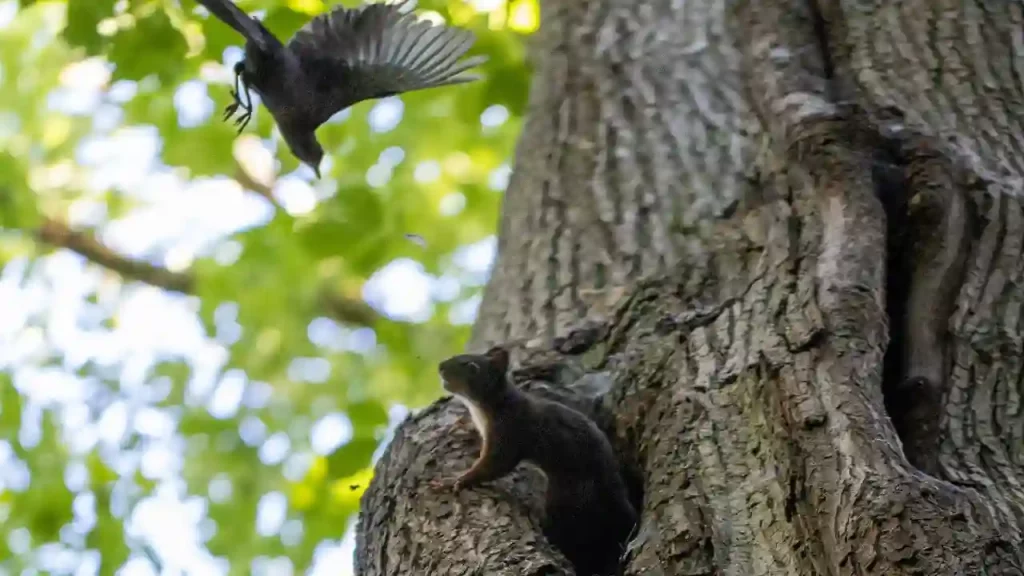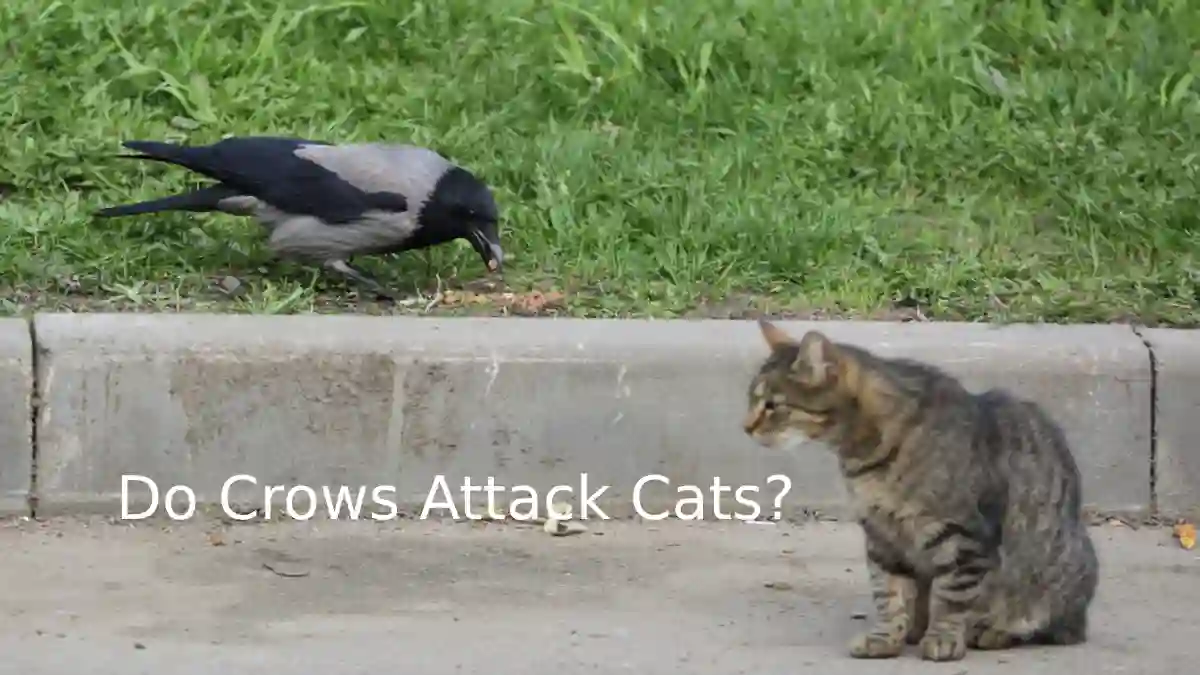In the U.S., it can seem like crows are everywhere. Crows are capable of nesting just in many different environments, ranging from tree trunks to skyscrapers. They build nests near humans in order to more easily find food, preferring populated locales over long expanses of forest, for instance.
But if your cat is an outdoor cat, or even if you just let your cat play outside in your fenced-in backyard, you might be wondering if the neighborhood crows pose a danger to your cat. You might’ve heard about how some birds, like great owls, even prey on cats.
Since crows have a reputation for mean-spirited behavior, it’s a good question to ask: do crows attack cats?
Crows have indeed been known to attack cats. They’re very protective of their young, and if they perceive a cat to be a threat to their nest, they may attack to discourage the cat from getting any closer to their nest. But otherwise, crows are unlikely to choose to attack a cat that minds its own business.
How do I know if a crow’s nest is nearby my location?
Crows begin building their nests in March, so if you’re lucky and particularly keen-eyed, for a window of a couple of weeks you may actually spot crows in your neighborhood building their nest.
Crows typically build nests out of natural materials, twigs and branches forming a sturdy outer shell, and soft materials like flowers or moss add comfort and warmth to the interior.
If you see crows shuttling materials like this from one location to another, you might be able to spot the general vicinity of the crow’s nest.
You might get more than one opportunity, as both parent crows are involved in building the nest, and sometimes helpers (such as last year’s hatchlings) are recruited to help acquire materials for the nest as well.
Crows seem to be attracted to my backyard, which seems unsafe for my cat. Is it common for crows to gather so close to people’s homes?
Crows might be gathering in your backyard if they find it to be attractive as a source of food.
For instance, perhaps you left snacks out on a patio table once; crows could remember this and return looking for another snack.
If you feed your cat outside, this food might also become a source of crow food.
You might also have a bird feeder that isn’t designed for small birds (crows are on the larger side for a bird); crows might be able to get some of those goodies as well.
But there are so many crows! They can’t all be feeding here, can they?
Crows are social animals, so if a small number of crows keep returning looking for food, other crows in the neighborhood might follow them the next time they visit.
Of course, this increases the likelihood of crows noticing your cat.
How do I get rid of the crows that are gathering in my backyard?
According to the Humane Society, getting rid of crows may require several tactics as part of a harassment campaign. They recommend hiding all traces of food, keeping your trash and compost very secure in a lidded container, reducing outdoor light, and even making sporadic loud noises or playing recordings of crow predators to make the nest inhospitable.
Fake crows such as those you might buy as Halloween decorations should work for a time to keep crows away, while fakes of other animals are less likely to work for long if at all.
Objects that are shiny and that move independently, such as Mylar balloons or CDs hung on strings to shift in the wind, have successfully scared off crows as well.
I’ve read that some communities have tried poison to get rid of crows. Is that a good idea?
No, this is not recommended. As some cities have found, poison has little effect on the overall crow population, and it’s inhumane to the crows who do get poisoned. And other unsuspecting animals might be affected as well.
If you find yourself pressed to get rid of crows that are disturbing you, stick to humane harassment techniques like the ones described above.
A group of crows has begun targeting my cat. Is this normal behavior?

If your cat has attracted the attention of a group of local crows (called a “murder”), they may indeed begin harassing behavior en masse, a tactic known as “mobbing.”
Crows are intelligent and can cooperate in this fashion to scare off enemies, and they might well remember your specific cat as such an enemy.
According to research reported by the Guardian, there are indications that with humans, crows can recognize and remember faces – including the faces of perceived enemies, like scientists who captured crows to study them and then released them.
Through their methods not clearly understood, crows are even able to warn other neighboring crows about these enemies!
Although researchers haven’t studied this phenomenon as it pertains to cats, scientists know that crows can certainly distinguish and recognize other crows over time, so if a cat has made an enemy of a crow, the crow’s grudge against that individual cat might last.
Remember that for crows, this is about protecting their nests and family as opposed to being a spontaneous act of malice against your cat.
I still haven’t been able to scare off the crows. How do I keep my cat safe in the meantime?
You should consider making your cat an indoor cat altogether, as indoor cats generally live longer under these safer conditions.
They are less likely to encounter other animals, not just crows, that might attack them, and they might themselves attack other pets in the neighborhood.
Additionally diseases like feline leukemia are a risk for outdoor cats, as well as rabies from racoons which is then a risk for you and your family.
Outdoor cats are also at risk for injuries or death from vehicle traffic, or they could get lost and not return home.
All these factors combine to make a good argument for keeping your cat indoors for the sake of its health. You’ll avoid crow problems altogether and you’ll worry much less about your cat’s safety.
Related Posts


